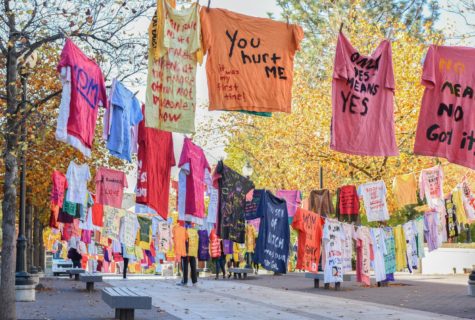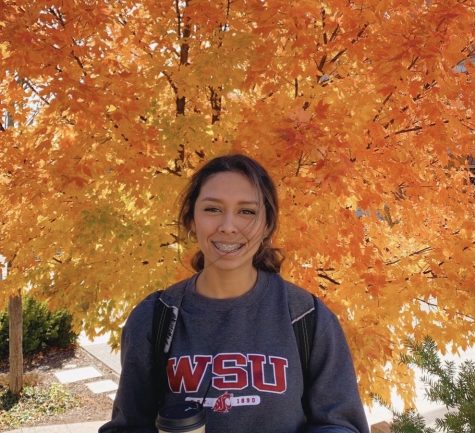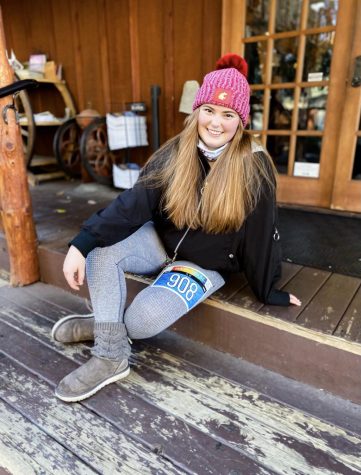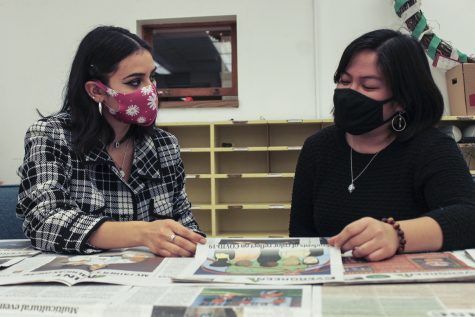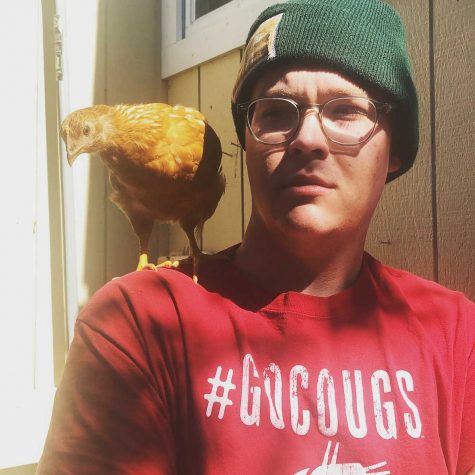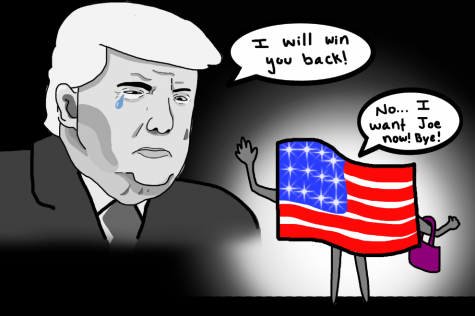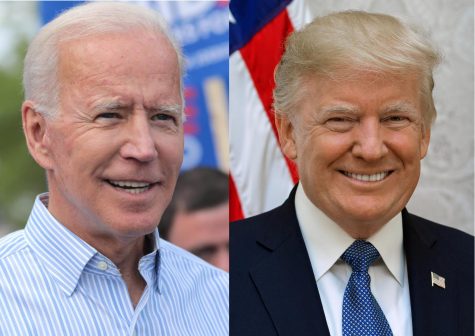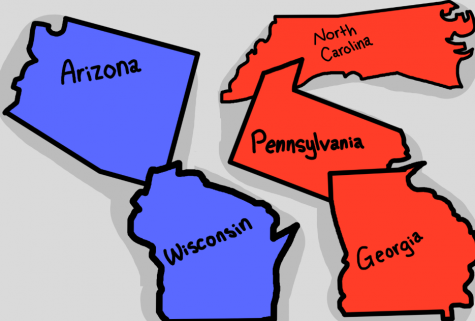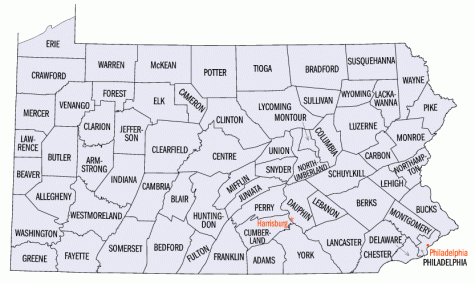Information overload
October 14, 2016
With the 2016 presidential election on the horizon, media literacy has never been more important.
The American people are receiving reports at high speeds on every detail and scandal of the campaign, and today’s media consumers must be extremely critical of everything they read.
Bruce Pinkleton, the interim dean of the Edward R. Murrow College of Communication, has researched media literacy, particularly the effects of advertisements on American youth.
He said that in this election, no skill is more essential than media literacy, the ability to analyze and evaluate media in different forms and not take every piece of information at face value.
Pinkleton explained that there are two approaches to interpreting the media: skepticism and cynicism.
Being cynical is not an appropriate approach, he said, because that’s where you do not believe anything you read or hear.
A skeptical approach, however, trains the viewer to double-check what they hear and compare it to other sources.
Journalism students are trained to be objective and keep their opinions out of articles, but this can be difficult, as articles can be unknowingly framed.
Based on the sources the reporter interviewed, an article could be skewed in one direction.
Carl Bernstein, an American journalist who reported on the Watergate scandal, said journalists should report on “the best obtainable version of the truth.”
This means reporting as truthfully as possible with the resources you have.
These resources may not include generous turn-around time for articles or the access to a source necessary for a story.
So a journalist writes an article that is truthful to the information they are able to gather in the time they are given.
But this can mean the reporter doesn’t have certain information to create the most well-rounded piece.
This makes critical reading, listening or viewing of any media report incredibly important.
A report on Republican presidential nominee Donald Trump by MSNBC may not present the information in the same way as Fox News, and The Daily Evergreen may not report on the arrest of a student the same way as The Moscow-Pullman Daily News.
The difference in reporting does not necessarily make one organization better than the other, but it can make it so a reader only gets one side of the story.
As one of the columnists at the Evergreen wrote this week, if you only know one side of an argument, you essentially don’t know anything.
The difference in news content can cause imbalanced judgement as well.
Media organizations throw a variety of content at their audiences, including articles, columns and advertisements.
The audience must know the difference between these different media types.
A column differs from an article because a column is an expression of the author’s opinion, while an article is the gathering of facts, devoid of the writer’s opinion.
The purpose of journalism is to gather information and report it in a cohesive, truthful way to the public.
One media organization’s way of reporting on an event is not necessarily incorrect, but by looking at reports from multiple organizations, consumers can gain a more comprehensive understanding of the issue.
Media literacy applies to all aspects of content consumption.
It’s important when reading an article on global warming or police brutality, and certainly during this election cycle.
The election has been full of hearsay, name-calling and finger-pointing.
Any time Democratic Party nominee Hillary Clinton trips, she is having a seizure. Any time Republican Party nominee Donald Trump mentions women, he is sexist.
It seems when one of them sneezes, it makes the news.
It is vital that we, as voting-age college students ready to contribute to society, are as educated as we can be going into the voting booth.
“In this election,” Pinkleton said, “I would encourage people to go out and double-check sources and double-check facts.”
The fact is, whoever is elected this fall will be in the Oval Office for the next four to eight years.
He or she will have control over the economy in which we will live in and have to try to find jobs and homes in.
We must do what we can to make this choice wisely.









